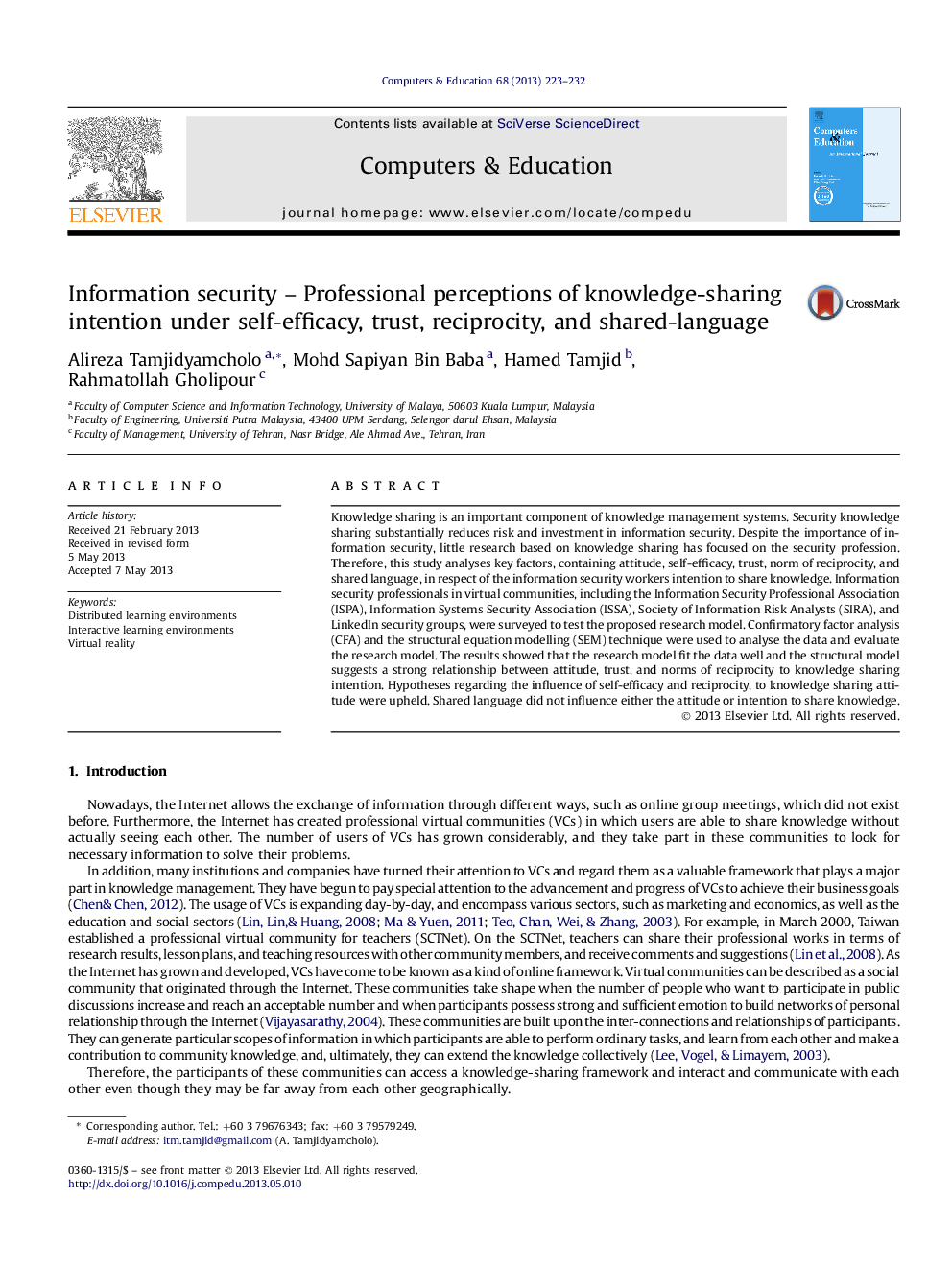| Article ID | Journal | Published Year | Pages | File Type |
|---|---|---|---|---|
| 348478 | Computers & Education | 2013 | 10 Pages |
•We model six factors which influence security workers knowledge sharing intention.•Effect of attitude, trust, reciprocity to knowledge sharing intention were upheld.•Self-efficacy and reciprocity had influence on knowledge sharing attitude.•Shared language affected neither intention nor attitude to share knowledge.
Knowledge sharing is an important component of knowledge management systems. Security knowledge sharing substantially reduces risk and investment in information security. Despite the importance of information security, little research based on knowledge sharing has focused on the security profession. Therefore, this study analyses key factors, containing attitude, self-efficacy, trust, norm of reciprocity, and shared language, in respect of the information security workers intention to share knowledge. Information security professionals in virtual communities, including the Information Security Professional Association (ISPA), Information Systems Security Association (ISSA), Society of Information Risk Analysts (SIRA), and LinkedIn security groups, were surveyed to test the proposed research model. Confirmatory factor analysis (CFA) and the structural equation modelling (SEM) technique were used to analyse the data and evaluate the research model. The results showed that the research model fit the data well and the structural model suggests a strong relationship between attitude, trust, and norms of reciprocity to knowledge sharing intention. Hypotheses regarding the influence of self-efficacy and reciprocity, to knowledge sharing attitude were upheld. Shared language did not influence either the attitude or intention to share knowledge.
